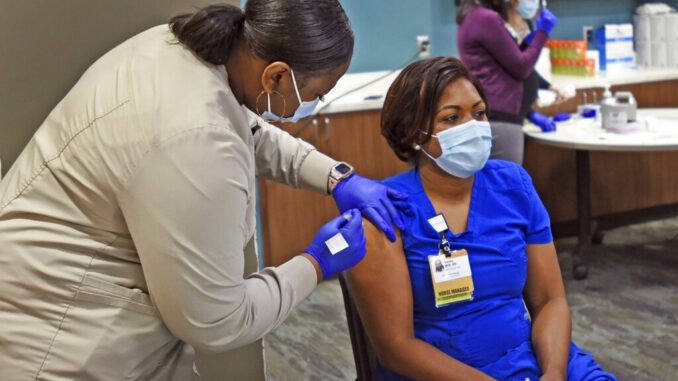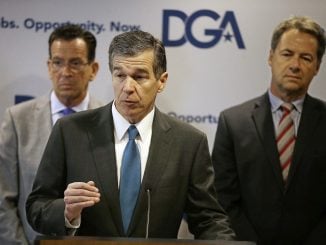
RALEIGH — With a COVID-19 vaccine being approved late last week, North Carolina Department of Health and Human Services (NCDHHS) has laid out a phased approach for vaccination across the state.
It was announced on Dec. 11 that the Pfizer vaccine has been approved by the Food and Drug Administration (FDA).
Pfizer had stated prior to FDA approval that it plans to be able to distribute at least 2.9 million doses within the first week with matching doses held for the same patients to get the second shot 21 days after the first dose.
Last week, NCDHHS Secretary Mandy Cohen held press briefings about the then-pending COVID-19 vaccine, its possible side effects and how the state will handle distribution.
According to Cohen, individuals will need at least two doses of the vaccine to ensure they are protected from the virus.
“This isn’t just one shot; we have to have everyone get two vaccinations before they have the protection,” Cohen said.
Cohen said that over 70,000 people participated in the clinical trials for the Pfizer and Moderna vaccines. Both trials include significant numbers of minority populations.
Side effects of the vaccine may include swelling at the injection site, fatigue or tiredness, joint pain, and headache. According to reports from Pfizer’s clinical trials, at least four patients also encountered Bell’s Palsy, which is a paralysis of facial muscles.
“It is important for people to understand that there is no COVID-19 virus in the vaccine,” said Cohen. “The vaccine imitates the infection. So, our bodies think a germ like the virus or COVID is attacking.”
Vaccine doses will first be shipped to North Carolina in batches. Around 85,500 doses will be sent to 11 North Carolina hospitals.
The 11 hospitals include Bladen County Hospital, Caldwell Memorial Hospital, CarolinaEast Medical Center, Catawba Valley Medical Center, Cumberland County Hospital System Inc (Cape Fear Valley Health System), Duke University Health System, Henderson County Hospital Corporation (Margaret R. Pardee Memorial Hospital), Hoke Hospital, The Charlotte-Mecklenburg Hospital Authority — Atrium Health, University of North Carolina Shared Services Agreement, and Wake Forest Baptist Health.
Once final instructions and meetings with the CDC conclude, North Carolina’s other 40-plus hospitals will also start getting shipments of the vaccine.
North Carolina will have a four-phase approach to vaccine distribution, but Cohen said it will “be free to everyone,” with either the government or insurance providers picking up the cost. Those with high risk of being exposed to COVID-19, like healthcare workers and emergency responders, are on the top of the list.
Phase 1 has two parts, “A” and “B.” Phase 1a includes all health care workers at high risk for exposure to COVID-19. The means doctors, nurses and anyone who interacts with and care for patients with COVID-19. This phase also includes congregate settings like long-term care staff and residents, nursing facilities, and adult, family and group homes.
Phase 1b will include adults who have at least two chronic health conditions that put them at risk as defined by the CDC. Examples of such conditions are cancer, COPD, serious heart conditions, sickle cell disease and Type 2 diabetes. This phase will also include essential adult workers who are at a high risk of exposure such as first responders, police, prison staff, food processing and teachers.
Phase 2 extends to remaining essential workers not covered by Phase1a, including health care workers, prison inmates, and those in homeless shelters or migrant and fishery housing. Phase 2 will also include any adults under 65 who have at least one chronic condition that puts them at risk of severe illness as defined by the CDC.
Phase 3 vaccinations will include college and university students and people in jobs considered critical to society who have a lower risk of exposure. According to NCDHHS’ guidance, K-12 students will be vaccinated when there is “an approved vaccine for children.”
Phase 4 is public-level vaccinations for anyone who wants one.



